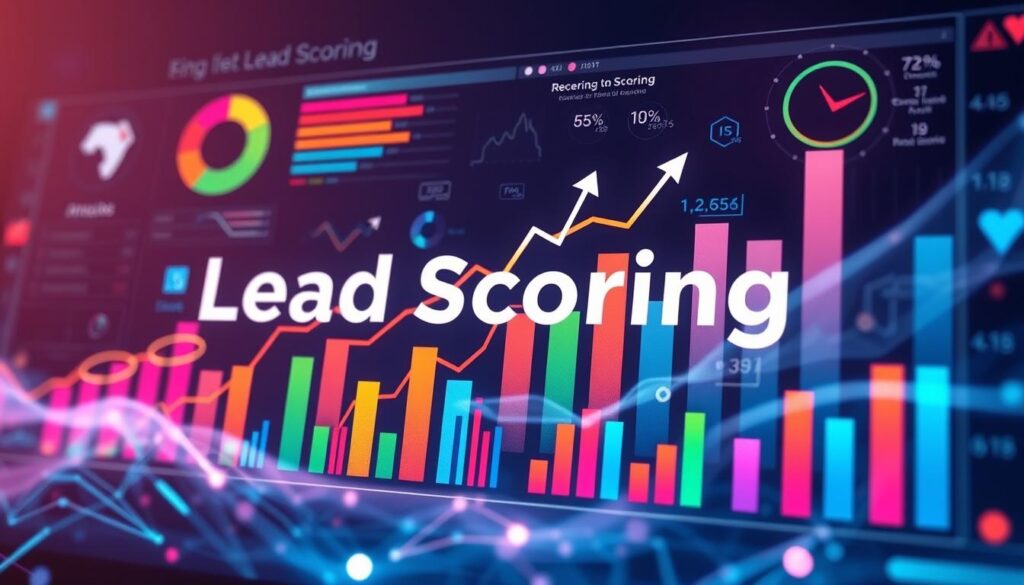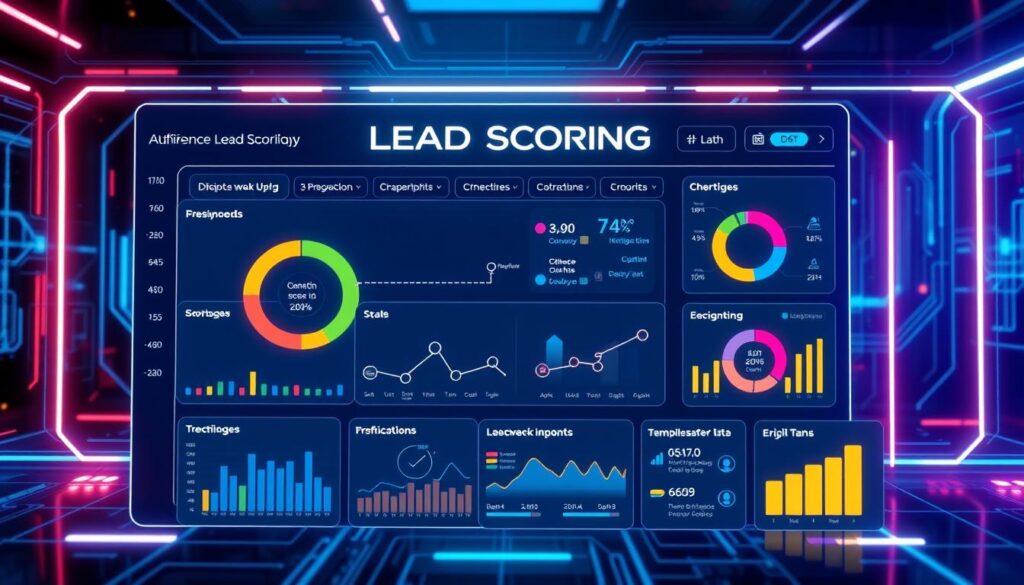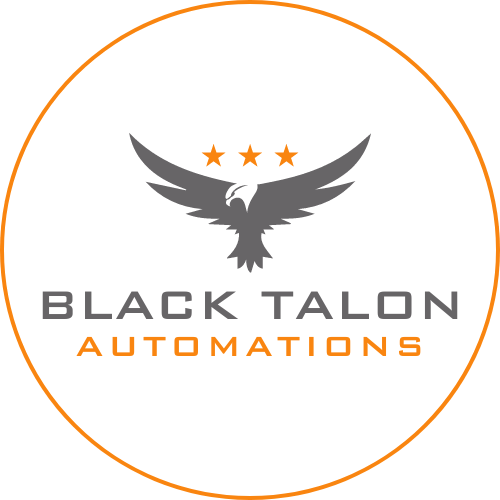In today’s fast-paced world, time is very valuable. Marketers and sales teams are always looking for ways to work smarter. Lead Intelligence is a game-changer that changes how you find and qualify your best leads. It scores, qualifies, and values leads automatically, saving your team hours every day.
Lead Intelligence works by using over 70 data points on each lead. You can set rules based on demographics, behavior, and more. This helps you find leads that match your ideal customer perfectly. It’s more than just scoring; you can also boost “Quote Value,” add notes, and set up automation rules. This means your team can focus on the leads most likely to convert.
Key Takeaways
- Lead Intelligence automates the lead scoring and qualification process, saving your team hours per day.
- Customizable rules allow you to score leads based on 70+ data points, ensuring you target the most promising prospects.
- Automation features like automated lead value adjustments and trigger-based actions accelerate your lead management workflow.
- Combining lead scoring with automation enables a more nuanced, data-driven approach to lead qualification.
- Integrating Lead Intelligence with your existing marketing stack amplifies the power of your lead management efforts.
Understanding Lead Intelligence and Automated Scoring Systems
The world of lead qualification has changed a lot in the digital age. We no longer just use old methods. Now, Customer Relationship Management and Marketing Automation tools help us find and grow our best B2B Sales leads.
The Evolution of Lead Qualification
Today’s lead scoring systems use lots of data to figure out lead quality. They look at more than just basic info. They check how leads act and engage to see if they might buy.
Key Components of Modern Lead Scoring
Modern lead scoring has real-time data, customizable rules, and works well with marketing and sales tools. This helps businesses find top leads quickly and well.
Data Points that Matter in Lead Scoring
- Website Interactions: We track how visitors act on our site, like what pages they look at and how long they stay.
- Email Engagement: We watch who opens emails and clicks links, and how they respond.
- Social Media Activity: We look at how well our posts do on social media, like how many people see them and what they say.
- Company Information: We use info like what industry a company is in and how big it is.
- Past Purchase History: We look at what a company has bought before to guess what they might buy next.
Lead scoring has gotten better at finding the best leads. This lets businesses use their time and money better and succeed in B2B Sales.

Creating Your Ideal Customer Profile for Lead Scoring
Making an Ideal Customer Profile (ICP) is key for Conversion Optimization and Data-Driven Marketing. It helps you find what makes a lead valuable. This info shapes your AI-Powered Sales lead scoring system.
Start by looking at where your best customers are, how they found you, and their business size. Use tools like Salespanel, CRM data, and Google Analytics for this. Ask yourself:
- Where do your most valuable customers reside?
- Which marketing channels do they typically come from?
- What actions do they perform on your website?
This research helps you know what makes a lead good. With an ICP, your lead scoring system can focus on the best prospects. This boosts Conversion Optimization and sales.
Lead scoring isn’t a one-size-fits-all thing. Your ICP and scoring should match your business and goals. Using Data-Driven Marketing and AI-Powered Sales helps tailor your strategy. This way, you get results that meet your needs.
Automating Lead Scoring: Identify Your Best Leads in Minutes
Automated lead scoring can change the game for your business. By setting up scoring rules based on your ideal customer, you can quickly find and focus on your best leads. This saves time for your sales team and makes sure you’re investing in the right opportunities.
Setting Up Automated Scoring Rules
Start by defining what makes a lead great for your business. Look at things like website engagement, landing page visits, or call transcript insights. Use tools like Salespanel to set up scoring rules that fit your lead management and Sales Automation plans.
Implementing Real-time Lead Qualification
- Set up IF/THEN automation rules to scan your lead database and act on certain criteria.
- This keeps your lead scores up to date, so your sales team always works with the best leads.
- Automating lead management means you can identify your best leads in minutes and focus on the most promising ones.
Customizing Scoring Parameters
Keep checking and tweaking your lead scoring parameters to match your business goals. Change scoring rules to reward good behaviors and penalize bad ones. This customization helps you improve your lead scoring system and boost your Sales Automation efforts.

Embracing automated lead scoring can transform how your business finds top leads quickly. Stay ahead by using data to manage leads and reach new sales heights.
Building Advanced Lead Scoring Workflows
Automating lead scoring is a smart way to find your top leads fast. But the real magic comes when you create advanced lead scoring workflows. These use Predictive Analytics, Customer Relationship Management, and Marketing Automation tools. They help qualify leads with great accuracy and make your sales process smoother.
To make advanced workflows, set up scoring rules that connect. Start by finding leads interested in a certain product. Then, add more rules to qualify them based on their score. Use negative scoring to lower points for bad traits or actions, avoiding false positives.
- Implement automation based on lead score thresholds, such as:
- Adding leads to targeted email campaigns
- Notifying your sales team
- Moving leads through the sales pipeline
- Leverage tools like Zapier to seamlessly integrate your Customer Relationship Management and Marketing Automation platforms. This lets you automate many actions based on lead score changes.
By creating these advanced lead scoring workflows, you unlock your Predictive Analytics full potential. This ensures your sales and marketing teams focus on the most promising leads. It leads to better results and a more efficient sales process.

Integrating Lead Scoring with Your Marketing Stack
Integrating lead scoring with your marketing tools is a smart move. It connects lead scoring with your CRM, marketing automation, and analytics. This creates a powerful system for managing leads.
CRM Integration Possibilities
Linking lead scoring with your CRM makes it easy to share lead data. It helps your sales team focus on the best B2B Sales leads. This way, they can work on the leads most likely to buy.
Marketing Automation Platform Sync
Connecting lead scoring with marketing automation lets you start personalized campaigns. It matches your Conversion Optimization efforts with each lead’s journey. This means each lead gets content that really speaks to them, boosting engagement and sales.
Data Analytics and Reporting Tools
Using AI-Powered Sales tools gives you deep insights into lead quality and scoring effectiveness. These insights help you tweak your scoring and improve your lead strategy. It’s all about making smart decisions based on data.
By integrating lead scoring with your marketing tools, you can improve the whole lead journey. It helps your sales and marketing teams work better together. This leads to more growth and revenue for your business.

Conclusion
Automated lead scoring changes the game for sales and marketing. It helps businesses spot their top leads fast. This way, companies can focus on the best leads, use resources wisely, and boost sales.
By using lead scoring with their marketing tools, companies can tailor their approach. This makes lead management more personal and effective.
As data-driven marketing grows, so will the role of automated lead scoring. It helps companies quickly find their best leads. This means they can spend more time on promising prospects, leading to better nurturing and more sales.
In short, adding automated lead scoring to a company’s marketing and sales is a big win. It helps make better decisions, improves team communication, and boosts lead management success.
FAQ
What is Lead Intelligence and how does it automate the lead qualification process?
How has lead qualification evolved from traditional methods to data-driven approaches?
What are the key data points for effective lead scoring?
Why is developing an Ideal Customer Profile (ICP) crucial for effective lead scoring?
How can businesses set up automated scoring rules and implement real-time lead qualification?
What are the key elements of advanced lead scoring workflows?
How can lead scoring be integrated with existing marketing stacks?
Source Links
- https://www.whatconverts.com/blog/automatic-lead-qualification-lead-intelligence/
- https://lucep.com/blog/what-is-lead-scoring-and-how-to-automate-it
- https://www.salesforce.com/ca/products/guide/lead-gen/scoring-and-grading/
- https://www.whatconverts.com/lead-intelligence/
- https://www.eweek.com/artificial-intelligence/ai-lead-scoring/
- https://www.yourdigitalresource.com/post/ai-for-lead-scoring
- https://salespanel.io/blog/marketing/lead-scoring-and-qualification/set-up-a-data-driven-lead-scoring-system-in-less-than-20-minutes/
- https://reply.io/lead-scoring/
- https://www.linkedin.com/posts/nick-roco_how-to-create-a-simple-automated-lead-scoring-activity-7237059383870779392-HF18
- https://www.leadspace.com/the-graph/
- https://www.close.com/blog/lead-scoring
- https://www.smartbugmedia.com/blog/building-a-lead-scoring-model
- https://www.hublead.io/blog/hubspot-lead-scoring
- https://martech.org/how-to-revamp-your-lead-scoring-strategy-for-2025/
- https://sendgrid.com/en-us/blog/lead-scoring-models
- https://salespanel.io/blog/marketing/lead-scoring/
- https://mcgaw.io/blog/lead-scoring-automation/
- https://www.cognism.com/blog/lead-scoring
- https://www.business.com/articles/lead-scoring/




